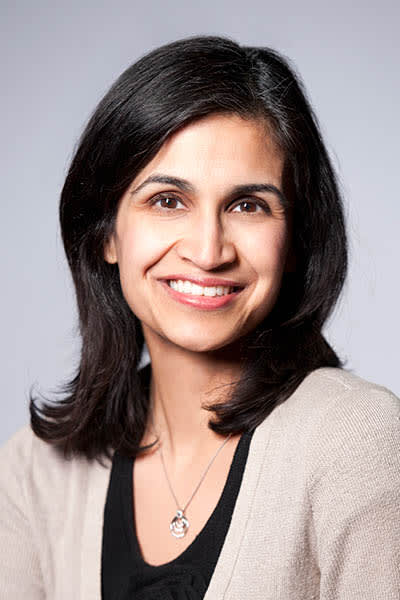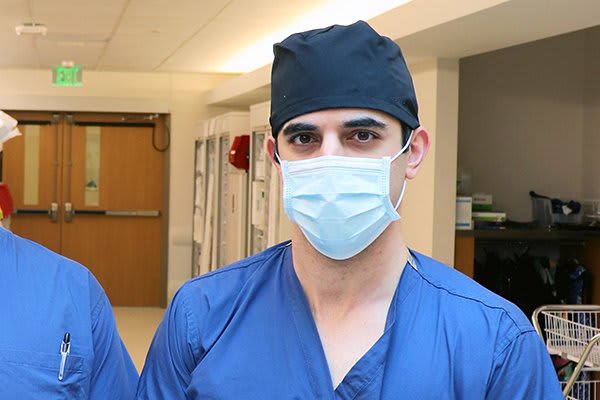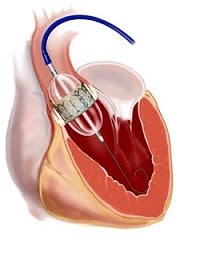By Stamford Health Staff
Q: You joined Stamford Hospital in 2013 to help expand the electrophysiology services available in our region. How has that been?
A: I feel fortunate to have had this opportunity to come to Stamford. The hospital has been very supportive. We’ve built a high quality program over the past three years that we are very proud of. We continue to expand our team which now consists of 5 nurses, 3 technicians, 2 nurse practitioners, and two physicians. We remain on the cutting edge of electrophysiology, providing the spectrum of new procedures available and we have completed the process of building the new lab in our new hospital.
Stamford is a wonderful community. The referring physician base is highly educated and extremely involved with their patients, and the patient population is well informed and motivated to remain active and healthy well into their later years. They’re fully aware of the medical options that are available to them and they ask a lot of great questions.
Q: Out of all of the patients who are referred to you, what percentage of these patients undergo ablation?
A: Probably 25% of all patients who are referred to me undergo ablation. Another 25% are not great candidates for ablation for one reason or another and for the remaining 50% I will first try to adjust their medical therapy.
Q: One of the unique things about you is that you do not consider every patient a candidate for ablation, and that your decision is usually not procedural but medical in nature. Can you elaborate?
A: It’s important to look at the bigger picture for every patient we see. I always explain to patients that ablation can be an excellent option for treatment, but it has limitations and it can make sense to try a conservative approach first for some. I may suggest a different medication or I may recommend further diagnostic testing if needed to better understand what is driving symptoms. I also encourage patients to adopt a healthy lifestyle that includes regular exercise, weight loss and alcohol reduction. All of these adjunctive measures can help promote staying in normal rhythm and, ultimately, give our patients the quality of life that they are looking for.
Q: What is the success rate for an ablation?
A: It depends very much on the type of ablation. Certain common arrhythmias are easily treated by an ablation, with success rates of over 95%. Other types of rhythm problems, most notably atrial fibrillation, are more complicated in nature. The success rate for first-time ablation for a person with occasional atrial fibrillation is 75-80%. For patients who have been in atrial fibrillation for longer the success rate for ablation is 60-65%. A repeat ablation can increase the efficacy of the procedure to 85-90%.
Q: Do most of your patients who have an atrial fibrillation ablation eventually get off of warfarin or other blood thinners?
A: I tend to be very conservative in my management of patients with atrial fibrillation. While some people attain a cure from ablation, for many people atrial fibrillation is a progressive disease similar to coronary artery disease in that it is managed rather than cured. There are those patients who have late recurrences of atrial fibrillation many years after the initial ablation. This may be due to the aging process and the continuation of risk factors.
Most importantly, my primary goal is to help patients reduce their risk of stroke. If they have baseline risk factors for stroke that merit a blood thinner, I will continue blood thinners indefinitely.
If a patient truly needs to stop their blood thinner, there are now procedures which can be done to minimize the risk of stroke without medication. These procedures target the part of the heart where the blood clots develop, the left atrial appendage, and either plug it or ligate it to prevent this.
Q: At what point in the atrial fibrillation disease should one consider an ablation?
A: The problem from a physiological standpoint is that often a patient comes to me late in the disease process and has moved from having what was paroxysmal to persistent atrial fibrillation. Not only does advanced disease remodel the heart, it also reduces the effectiveness of any therapy, including ablation.
Any patient who has symptomatic atrial fibrillation after trying medical therapy is an appropriate candidate for ablation. I like to develop a relationship with the patient, discuss goals of therapy, and/or adjust medications if indicated before I consider ablation.
Q: What changes do you see coming to electrophysiology over the next five years?
A: We continue to strive to expand our services to encompass everything that can be done for patients who suffer from electrical problems of their heart. We are getting better at diagnosing problems more effectively, thanks to the better wearable and injectable heart monitors now available. We continue to offer the most state or the art technologies for patients who undergo an ablation to treat their arrhythmias. We’re planning to roll out the WATCHMAN procedure later this year for patients who tolerate atrial fibrillation but have either a contraindication for anticoagulation therapy or can’t be adequately protected from a stroke with medical therapy. It’s an exciting time to be here on the heels of the new Stamford Hospital, and we are fortunate to be able to give compassionate, patient centered care at the cutting edge of medicine.
Q: You joined Stamford Hospital in 2013 to help expand the electrophysiology services available in our region. How has that been?
A: I feel fortunate to have had this opportunity to come to Stamford. The hospital has been very supportive. We’ve built a high quality program over the past three years that we are very proud of. We continue to expand our team which now consists of 5 nurses, 3 technicians, 2 nurse practitioners, and two physicians. We remain on the cutting edge of electrophysiology, providing the spectrum of new procedures available and we have completed the process of building the new lab in our new hospital.
Stamford is a wonderful community. The referring physician base is highly educated and extremely involved with their patients, and the patient population is well informed and motivated to remain active and healthy well into their later years. They’re fully aware of the medical options that are available to them and they ask a lot of great questions.
Q: Out of all of the patients who are referred to you, what percentage of these patients undergo ablation?
A: Probably 25% of all patients who are referred to me undergo ablation. Another 25% are not great candidates for ablation for one reason or another and for the remaining 50% I will first try to adjust their medical therapy.
Q: One of the unique things about you is that you do not consider every patient a candidate for ablation, and that your decision is usually not procedural but medical in nature. Can you elaborate?
A: It’s important to look at the bigger picture for every patient we see. I always explain to patients that ablation can be an excellent option for treatment, but it has limitations and it can make sense to try a conservative approach first for some. I may suggest a different medication or I may recommend further diagnostic testing if needed to better understand what is driving symptoms. I also encourage patients to adopt a healthy lifestyle that includes regular exercise, weight loss and alcohol reduction. All of these adjunctive measures can help promote staying in normal rhythm and, ultimately, give our patients the quality of life that they are looking for.
Q: What is the success rate for an ablation?
A: It depends very much on the type of ablation. Certain common arrhythmias are easily treated by an ablation, with success rates of over 95%. Other types of rhythm problems, most notably atrial fibrillation, are more complicated in nature. The success rate for first-time ablation for a person with occasional atrial fibrillation is 75-80%. For patients who have been in atrial fibrillation for longer the success rate for ablation is 60-65%. A repeat ablation can increase the efficacy of the procedure to 85-90%.
Q: Do most of your patients who have an atrial fibrillation ablation eventually get off of warfarin or other blood thinners?
A: I tend to be very conservative in my management of patients with atrial fibrillation. While some people attain a cure from ablation, for many people atrial fibrillation is a progressive disease similar to coronary artery disease in that it is managed rather than cured. There are those patients who have late recurrences of atrial fibrillation many years after the initial ablation. This may be due to the aging process and the continuation of risk factors.
Most importantly, my primary goal is to help patients reduce their risk of stroke. If they have baseline risk factors for stroke that merit a blood thinner, I will continue blood thinners indefinitely.
If a patient truly needs to stop their blood thinner, there are now procedures which can be done to minimize the risk of stroke without medication. These procedures target the part of the heart where the blood clots develop, the left atrial appendage, and either plug it or ligate it to prevent this.
Q: At what point in the atrial fibrillation disease should one consider an ablation?
A: The problem from a physiological standpoint is that often a patient comes to me late in the disease process and has moved from having what was paroxysmal to persistent atrial fibrillation. Not only does advanced disease remodel the heart, it also reduces the effectiveness of any therapy, including ablation.
Any patient who has symptomatic atrial fibrillation after trying medical therapy is an appropriate candidate for ablation. I like to develop a relationship with the patient, discuss goals of therapy, and/or adjust medications if indicated before I consider ablation.
Q: What changes do you see coming to electrophysiology over the next five years?
A: We continue to strive to expand our services to encompass everything that can be done for patients who suffer from electrical problems of their heart. We are getting better at diagnosing problems more effectively, thanks to the better wearable and injectable heart monitors now available. We continue to offer the most state or the art technologies for patients who undergo an ablation to treat their arrhythmias. We’re planning to roll out the WATCHMAN procedure later this year for patients who tolerate atrial fibrillation but have either a contraindication for anticoagulation therapy or can’t be adequately protected from a stroke with medical therapy. It’s an exciting time to be here on the heels of the new Stamford Hospital, and we are fortunate to be able to give compassionate, patient centered care at the cutting edge of medicine.
Featured Expert/ Author













)